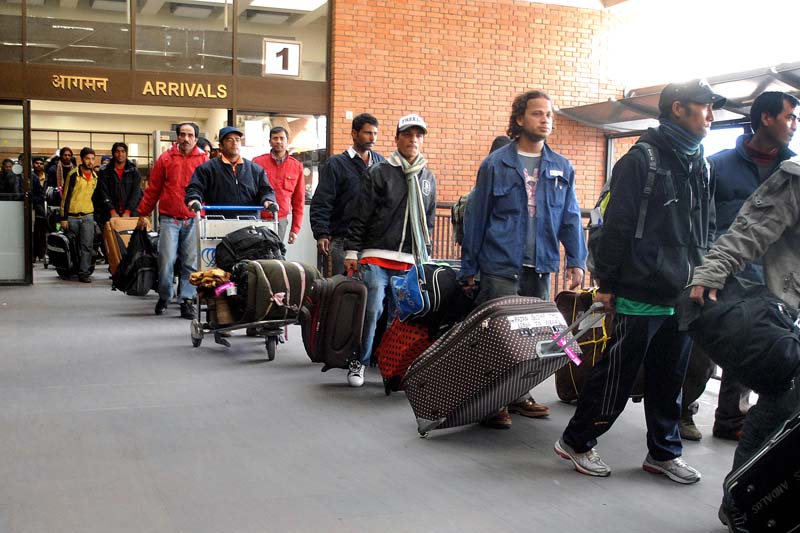KATHMANDU: As the pursuit of better income opportunities abroad continues to drive Nepali youths, a concerning trend of deception, exploitation, and abuse has emerged, shedding light on the challenges faced by individuals seeking employment overseas.
Despite obtaining government-approved work permits, young individuals are falling victim to unscrupulous practices at the hands of manpower companies and agents, raising questions about the integrity of the foreign employment process.
Every day, approximately 3000 young Nepalis venture to Gulf countries, Malaysia, Europe, and other nations, seeking employment opportunities. However, upon arrival at their foreign destinations, many find themselves deceived, jobless, and without the promised services, exposing them to various risks and challenges.
Nepali workers abroad often encounter harassment, excessive working hours, passport denial, wage and benefit discrepancies, inadequate pay, restricted mobility, and neglect when ill or injured.
This exploitation, coupled with increased risks of violence, human trafficking, and sexual exploitation, has transformed foreign employment into a daunting obligation for many rather than a promising opportunity.
In the period from mid-July to mid-January, deceived youths received a total of Rs 138.4 million in compensation for their sufferings during foreign employment endeavors.
This includes victims who returned and those who failed to migrate due to fraudulent activities. The victims comprise 1,560 children, highlighting the widespread impact of deceptive practices.
Complaints filed with the Department of Foreign Employment’s (DoFE) Relief and Rescue Coordination Section reached 690 during the same period, leading to the rescue of 45 distressed individuals abroad and compensation for 172.
The DoFE’s efforts have provided relief, but challenges persist, with many victims expressing their grievances about the lack of receipts for payments made to manpower companies.
Despite the hardships, foreign employment remains a significant source of foreign exchange earnings for Nepal, with over 3,000 young people embarking on foreign employment journeys daily.
The data from the DoFE indicates that in six months, over 3,043,000 individuals received new work permits or renewed existing ones. The number of men and women obtaining work permits through government mechanisms and manpower companies underscores the significance of foreign employment in the country.
While foreign employment serves as an economic lifeline, addressing the issues related to exploitation, deception, and fraud in the foreign employment sector is imperative to ensure the well-being and fair treatment of Nepali workers abroad.

